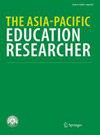Creativity in Crisis: Re-envisioning Higher Education in Myanmar’s Spring Revolution
IF 4.6
3区 教育学
Q1 EDUCATION & EDUCATIONAL RESEARCH
引用次数: 0
Abstract
Abstract In the spring of 2022, we (a teacher–educator from the USA and a Kachin graduate research assistant) interviewed 14 participants from Myanmar who were engaging in an unprecedented educational re-imagining during the Spring Revolution following the 2021 military coup that gripped the county. Three preliminary findings of our study focus on creativity in crisis in higher education, which we categorized as actors, actions, and procedures, or who, what, and how. ‘Who’ refers to actors and their creativity in forming new alliances among inter-ethnic and inter-generational educators and activists to remake education. ‘What’ refers to creativity in content in addressing inequity and ‘fake history’ in the national curriculum. ‘How’ addresses creativity in the delivery of education in the midst of extreme challenges and opposition. This look into the way crises can lead to creativity in education, with a focus on higher education, presents a unique opportunity to witness how grassroots actors in Myanmar are seeking to transform higher education in a ‘radical bureaucratic overhaul,’ as one participant put it, making it more inclusive, critical, and just.危机中的创造力:重新设想缅甸春季革命中的高等教育
在2022年春天,我们(一位来自美国的教师教育家和一位克钦族研究生研究助理)采访了14位来自缅甸的参与者,他们在2021年军事政变后的春季革命期间参与了一场前所未有的教育重塑。我们研究的三个初步发现集中在高等教育危机中的创造力,我们将其分类为演员,行动和程序,或者谁,什么,以及如何。“谁”指的是演员和他们在跨种族、跨世代的教育家和活动家之间建立新联盟以重塑教育的创造力。“什么”指的是在解决国家课程中的不平等和“假历史”方面的内容创造性。“如何”解决了在极端挑战和反对中提供教育的创造力。本文以高等教育为重点,探讨了危机如何导致教育创新,提供了一个独特的机会,可以见证缅甸的基层行动者如何寻求通过“彻底的官僚改革”来改变高等教育,正如一位与会者所说,使其更具包容性、批判性和公正性。
本文章由计算机程序翻译,如有差异,请以英文原文为准。
求助全文
约1分钟内获得全文
求助全文
来源期刊

Asia-Pacific Education Researcher
EDUCATION & EDUCATIONAL RESEARCH-
CiteScore
7.70
自引率
3.00%
发文量
58
期刊介绍:
Founded by the Academic Publications Office, De La Salle University, Manila, PhillippinesTHE ASIA-PACIFIC EDUCATION RESEARCHER (TAPER) is an international refereed journal of original research in education. It provides a venue for the publication of empirical and theoretical studies in education, with emphasis on the experiences of successful educational systems in the Asia-Pacific Region and of the national educational systems therein that are presently underrepresented in the research literature. The journal publishes:• Regular Article that report original research work that leads to the understanding and/or improvement of educational processes and outcomes using research methods and analytic frameworks of the varied academic disciplines (anthropology, applied linguistics, cognitive science, economics, history, philosophy, political science, psychology, sociology, among others) and also using multidisciplinary and interdisciplinary approaches;and Special issue articles whose description will be provided on Call for Papers of each special issue.Regular Article shall contain maximum 6000 words.
 求助内容:
求助内容: 应助结果提醒方式:
应助结果提醒方式:


